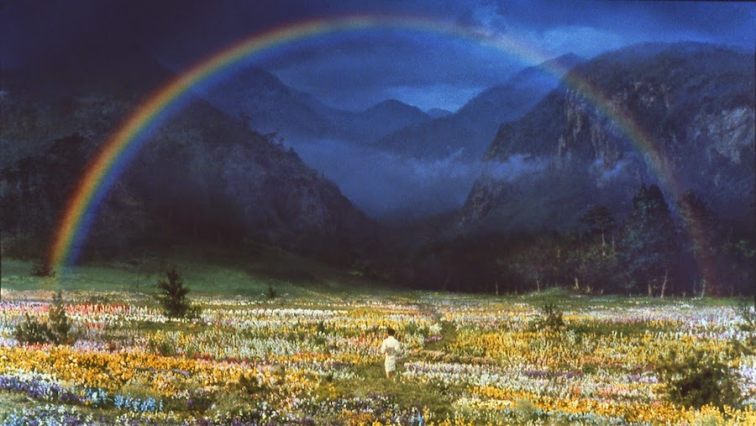Lolita (1962) Directed by Stanley Kubrick
I'll start with a blanket assertion that I think is hard to dispute: it is impossible for a movie to do justice to Vladimir Nabokov's immaculately written, morally complex, hugely controversial
Lolita. I don't think the Stanley Kubrick version comes close to doing so, though I do give some points to Adrian Lyne's 1997 version of
Lolita, starring Jeremy Irons. I think the more recent film is superior to the Kubrick version on
nearly all counts (as good as he is, and he is very good,Frank Langella as Clare Quilty is no match for Peter Sellers). What does the first movie get wrong that the later movie gets right? The Kubrick version boasts a script that was co-written by Nabokov, so isn't that a plus? No, Nabokov handed in a 700 page draft of a screenplay that James B. Harris, one of the producers of the movie, said "it was impossible to shoot--it was impossible to lift." Harris and Kubrick took over the task of coming up with a workable screenplay and the result is often entertaining and repulsive simultaneously but the end result is more a Kubrick movie than a Nabokov adaptation. While the movie, consistent with the novel, incorporates humour into the narrative, it lacks the sensuality and eroticism that exists in the novel almost completely. What we end up getting in the Kubrick version is a movie about an aging pedophile whose story is reduced to screechy melodrama by the end. James Mason is too old for the role with the result that he comes across as a dirty old man with a terrible obsession. In the Lyne's version, Humbert Humbert is played by Jeremy Irons as more of a tortured soul aware of his own corruption but incapable of halting his moral decay. As in the novel he is a monster, but a monster the audience can feel a hint of empathy for, something that invariably complicates reaction to his character's treachery.
The biggest difference in the two movies has to do with the sensual, erotic element of the book. The Lyne version doesn't shy away from this at all, and is much, much truer to the novel in this regard. Through no fault of its own, the Kubrick version is made in the wrong time and place. Censorship in the US in 1962 forbade anything but the subtlest hint of Humbert and Lolita's true relationship. Much was implied, of course, but in only one very brief scene does it look like the pair are about to have sex. Kubrick's movie focuses on their destructive relationship but from the standpoint of a jealous suitor and his uncontrollable partner, not from the complex psychological framework that Nabokov constructs in the book. And Kubrick spends far more time on Lolita's over-the-top fishwife of a mother, played for maximum vulgarity by Shelley Winters. Kubrick gives Winters a lot of leeway, not to mention screen time, and she sure uses it. This is equally true of Peter Sellers whose Claire Quilty is literally a show stopper. Sellers is great whenever he is on screen, but like Robin Williams, another actor who preferred the broadest of strokes, he has a tendency to suck all the oxygen out of the room. Though I enjoyed him immensely I was mostly watching Sellers, the actor, and not Quilty, the character. In the same respective roles, Melanie Griffith and Frank Langella are both used far more sparingly and in the right proportion. As a result they fit into the movie much more believably and appropriately than Winters and Sellers do.
However, no movie can capture the brilliance and command of Nabokov's writing. Lolita, the novel, works partly because even given its highly controversial subject matter, Nabokov has the ability to create a complex inner world that is gracefully and beautifully expressed. The journey in literature is far more complex and thematically challenging than the journey provided in either movie. The humour, the wit, the psychological insight, the satiric element are all handled by Nabokov with a delicate touch, free from the morbid and the sensational. Other adaptations of other Nabokov works have run into similar problems. If you eliminate the author's use of language from the interpretation in other media, you eliminate what made the work transcendent in the first place. Nabokov as a prose stylist may be unmatched in the 20th century. Not bad for someone writing in his third language.






